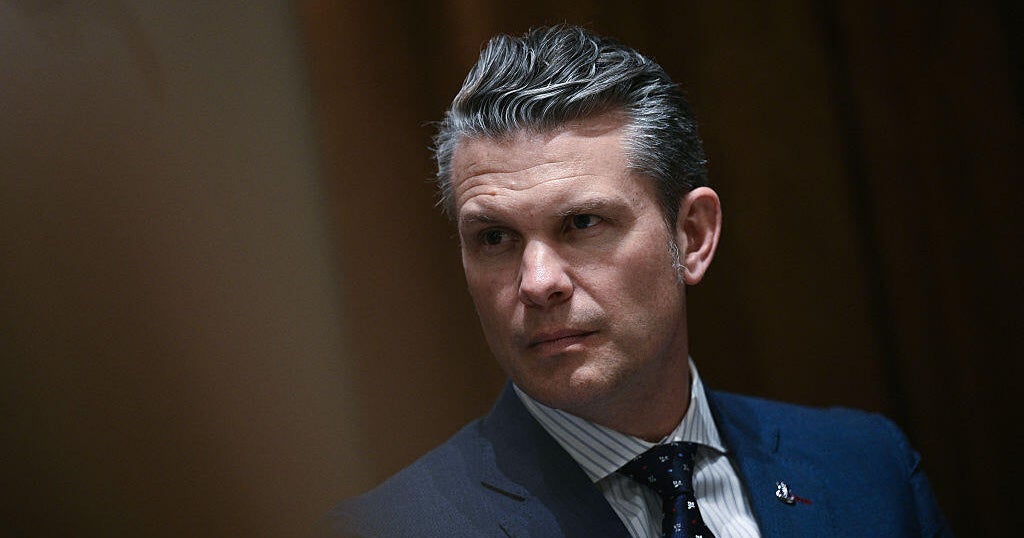Recent developments have sparked controversy surrounding Defense Secretary Pete Hegseth and the use of an unauthorized system within his office that purportedly allows him access to encrypted messages while maintaining a physical barrier to mobile devices. Sources reveal that this workaround poses potential security risks, as it bypasses established Pentagon protocols. Hegseth’s actions have drawn scrutiny given his prior reporting on sensitive military operations.
| Article Subheadings |
|---|
| 1) Controversial Communication System |
| 2) Security Concerns Raised |
| 3) The Role of Marine Col. Ricky Buria |
| 4) The Implications of Signal Messaging |
| 5) Calls for Accountability and Transparency |
Controversial Communication System
Sources indicate that a system was established in Defense Secretary Pete Hegseth‘s office to enable him to check messages from the encrypted messaging app Signal, bypassing standard security protocols set by the Pentagon. The arrangement reportedly involves a computer monitor that provides remote access to text messages from Hegseth’s personal device, allowing him to check and respond to these messages directly from his desk. This system, characterized by some as a “dirty line,” calls into question the integrity of practices designed to uphold national security.
Security Concerns Raised
The implications of this system have stirred significant alarm among security experts and military officials who highlight the inherent risks associated with such a communication method. By circumventing official security measures, Hegseth is thought to have gained access to his personal text messages and Signal chat groups without his mobile device being physically present in the Sensitive Compartmented Information Facility (SCIF) of the Pentagon, which could expose vulnerable information to potential adversaries. Despite the Defense Department denying the existence of a “dirty line,” concerns linger over the integrity of the communication channels within such a sensitive environment.
The Role of Marine Col. Ricky Buria
Further complicating this issue is the involvement of Marine Col. Ricky Buria, an aide in Hegseth’s office, who reportedly played a role in setting up this unauthorized connectivity system. Sources indicate that Buria was tasked with resolving internet connectivity problems during the initial days of the Hegseth administration, which led to his oversight over implementing the Signal workaround. The role of military personnel in facilitating such actions has raised questions about adherence to defense protocols and standards, highlighting the necessity for a thorough review and potential repercussions for those involved.
The Implications of Signal Messaging
The use of Signal, an end-to-end encrypted communication application, allows users to send and receive messages securely, which is critical for maintaining privacy in sensitive conversations. However, the accessibility of such platforms from unauthorized locations poses severe risks to cybersecurity. Hegseth’s previous reports indicating the sharing of sensitive military operations in personal Signal messages further complicate matters and contribute to a broader discourse regarding the accountability of military officials in their communications.
Calls for Accountability and Transparency
In light of these developments, there has been a growing chorus of demands for accountability and transparency from military oversight organizations and lawmakers alike. Concerns regarding executive communication practices at such high levels of government necessitate a reevaluation of existing security protocols to ensure compliance and safeguard national security interests. As the ramifications of Hegseth’s actions continue to unfold, calls for an internal investigation are intensifying, aligning with a broader emphasis on maintaining integrity within military communication channels.
| No. | Key Points |
|---|---|
| 1 | A system was reportedly established in Defense Secretary Pete Hegseth‘s office allowing him to access the Signal messaging app. |
| 2 | The workaround enables him to bypass standard security protocols, raising cybersecurity concerns. |
| 3 | Sources indicate that Marine Col. Ricky Buria played a role in organizing this unauthorized system. |
| 4 | The use of Signal from unsecured locations could expose sensitive information to adversaries. |
| 5 | There are calls for accountability and a reevaluation of communication protocols in the military. |
Summary
The situation surrounding Pete Hegseth highlights significant vulnerabilities within communication protocols at the highest levels of government. As the Pentagon navigates issues of security and personal communications, this instance underscores the importance of strict adherence to guidelines designed to protect national security. Regulatory bodies and military officials face critical questions regarding oversight and accountability moving forward.
Frequently Asked Questions
Question: What is the significance of Hegseth’s actions?
The controversy surrounding Hegseth’s actions brings to light potential lapses in cybersecurity protocols, raising concerns about how sensitive operational details are communicated within the Defense Department.
Question: How does Signal work?
Signal is an end-to-end encrypted messaging platform that mirrors messages between a desktop application and the user’s mobile device, ensuring secure communication.
Question: What are the potential risks of bypassing standard security protocols?
Bypassing established security protocols can expose sensitive information to adversaries, creating vulnerabilities that could be exploited for espionage or other malicious activities.


